Mark Halsey says fans should hear VAR exchanges and reveals which two players were always ‘in his ear’
Published: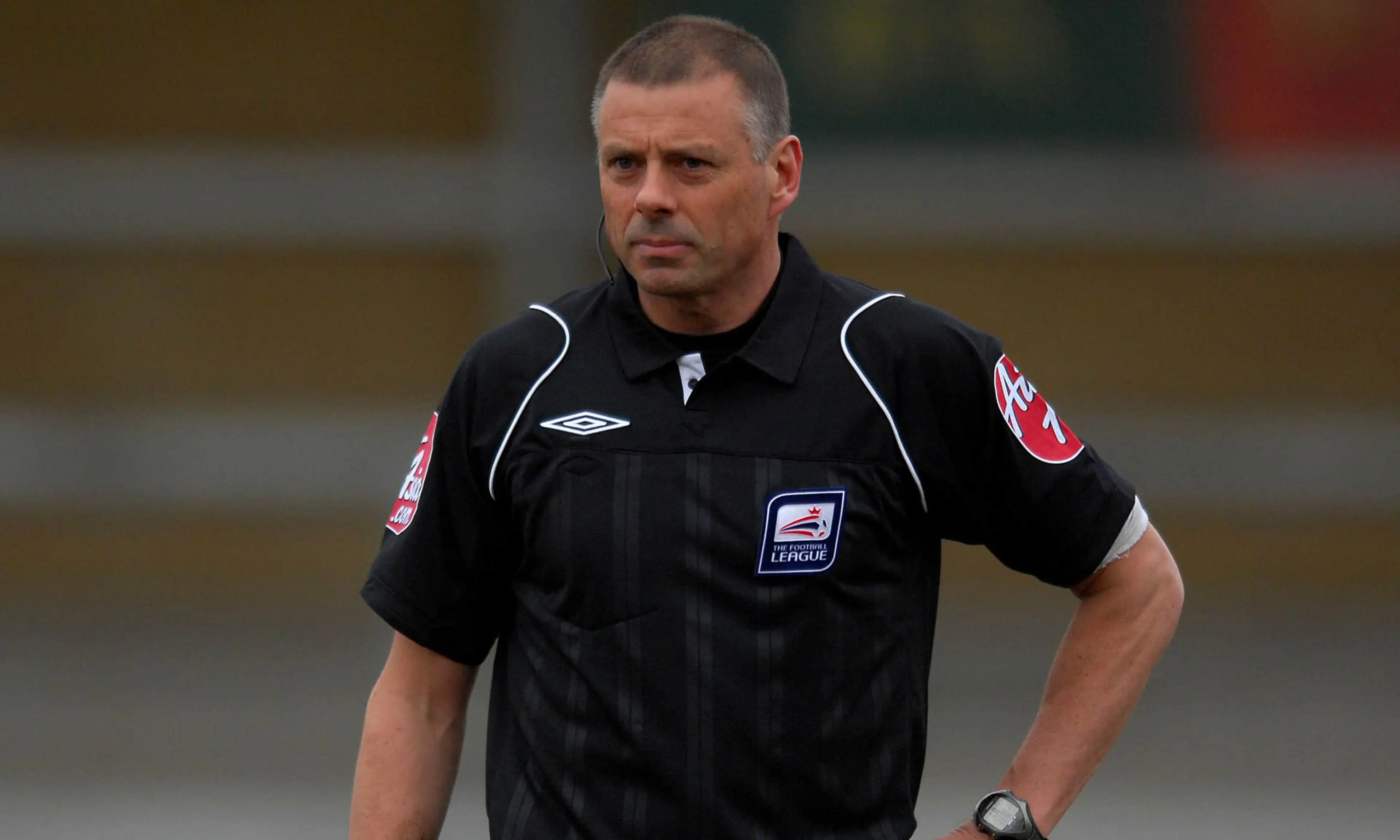
In the second part of an exclusive interview with Ladbrokes, former Premier League referee Mark Halsey discussed death threats, celebrating goals, Arsene Wenger, the two players who spent the most time ‘in his ear’ and how he would improve VAR.
Click on the link to read the first part, a fascinating and entertaining insight into the life of a top-flight official.
Liverpool fans sent me death threats for sending off Jonjo Shelvey
When you’re an active referee, you’re told not to go on social media for obvious reasons, but when I retired a lot of people said it might be a good idea if I was to set up a Twitter account where I can give my thoughts and opinions on certain decisions.
Listen, I do get quite a few people having a go at me, but I just reply politely. I’ve had a couple of incidents where it’s been really bad towards myself and my family.
All I’m doing is giving an honest opinion, and obviously some people don’t like that. I just say things honestly, and I tell people what I’d do if I was refereeing.
The worst it’s ever got was back when I was refereeing, in particular it was a Liverpool v Man United game in 2012.
I sent off Jonjo Shelvey in the first half after he went in for a challenge with Jonny Evans. Liverpool went on to lose the match 2-1, and afterwards I received death threats towards me and my family from Liverpool supporters. The police had to step in and thankfully they sorted it for me.
The club – to their credit – were fantastic in how they dealt with things. I got a lovely letter from Liverpool Football Club after it had all happened, condemning what their fans had done, which I really appreciated.
I remember, that game was on a Sunday afternoon, and then I was supposed to be refereeing a Southampton game on either the Tuesday or the Wednesday in the League Cup.
I was asked if I wanted to be removed from that game, but I said no, because then they win, don’t they? So I went down there to referee the game, and had no problems.
The PGMOL management were there at that game, and to be fair to them, they really do look after you when you’re dealing with things like that.
I’m a football fan… of course I’ve celebrated goals in games I’ve refereed
Sometimes it is hard to contain yourself when you’re refereeing a game – you know, the majority of the time, despite the value of the players on the pitch, as soon as you cross that white line, you’re just refereeing a football match between 22 people.
But every so often something special happens and you can’t help yourself.
I remember refereeing that Newcastle game where Alan Shearer scored that wonder goal against Everton at St James’ Park. I was right behind it, so as soon as he hit it, I just shouted “that’s a goal!” You can’t help it. I could see it, as soon as it left his boot, I knew exactly where it was going. I just shook his hand and told him how fantastic it was.
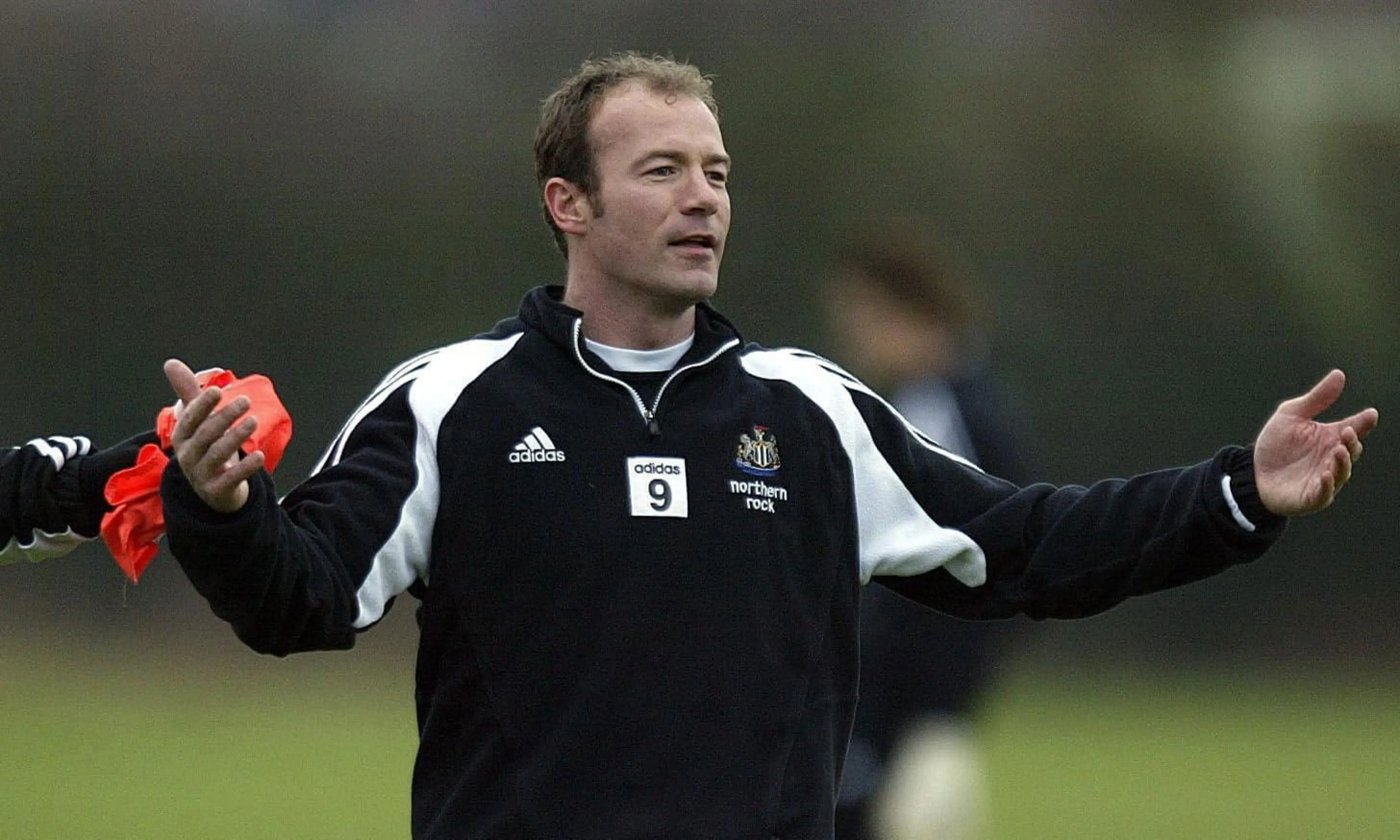
Because you love football – anyone who referees loves the game – sometimes you’ve just got to appreciate those special moments.
In this day and age, if you saw a referee go up to a player and do something similar, everyone would be on them – and that’s the problem with the game today.
When you’ve refereed at a top level for so long, you do get on with players, you do get friendly with them. So when you see someone do something which you just know is going to go down in the history books, of course you’re going to want to acknowledge and appreciate it.
I remember seeing Xabi Alonso’s goal against Newcastle from the halfway line. We’re both stood quite close to each other and, again, I couldn’t believe what I was watching. “That’s a goal!” – you could see exactly where it was going. I had to tell him how good it was.
It was the same with Luis Suarez, as well, against Norwich. I was refereeing that game, and Norwich are on the attack. The cross comes in and it comes to nothing, the ball goes to Glen Johnson who lumps it forward.
The Norwich defender misses it and Suarez is in, but because of how quickly it all happened, I was so far behind the action. I had absolutely no chance of getting there, but luckily for me Suarez decided to do me a favour and just hit this ball and it’s gone straight in. All I thought was ‘thank God for that’.
Arsene Wenger’s classy gesture during my wife’s leukaemia battle
Just because I was forced out of work because of my battle with cancer, I didn’t stop going to games, and there’s one occasion in particular which springs to mind when I think about some of the classy touches I saw from the world of football.
Bolton Wanderers were playing Arsenal and I was in and around the players’ area – a couple of the Arsenal players came up to see me and asked how I was getting on as most teams did whenever I went to watch games.
But on this particular occasion, Arsene Wenger himself came up to me. My wife was battling leukaemia at the same time as I was going through my problems.
Anyway, Arsene comes over to speak to me. He wasn’t bothered about how I was, he wanted to know how she was getting on!
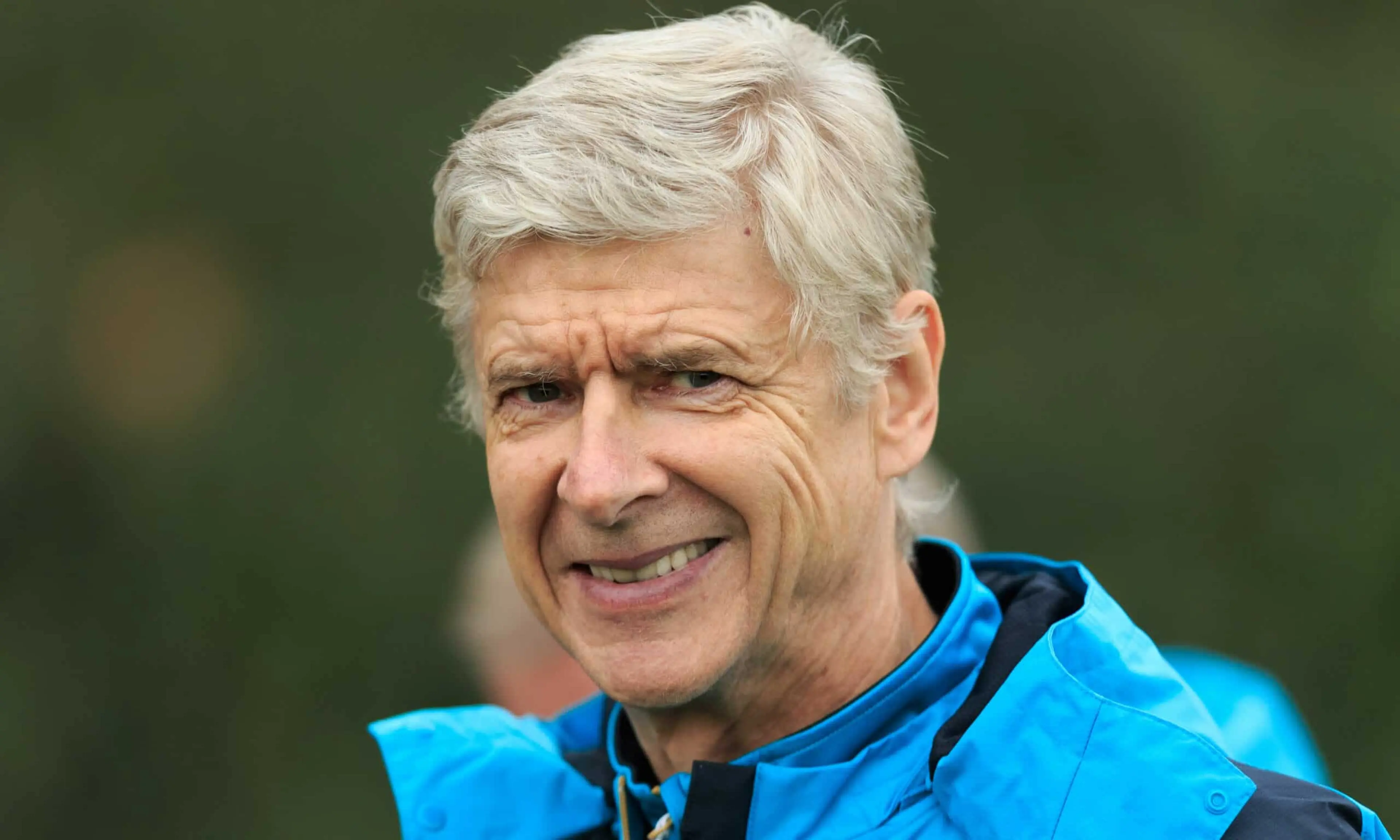
“How’s your wife, Mark?”
“Yeah, she’s OK. She’s here today, up in the players’ lounge.”
“Right, take me to her.”
So I’ve had to take him upstairs, into a packed-out lounge, and Arsene has just walked straight past everyone and over to my wife and talked to her for five minutes. Everyone was just silent. I don’t think they could believe it. And just like that he went back down to be with his team.
That’s something I’ll never ever forget – it was just fantastic. I still text him every so often even to this day. He’s a fantastic man, he really is.
I used to referee Big Sam’s Bolton training matches when I first moved up to the Premier League
I’ve got Sam Allardyce to thank a lot for helping me in my younger days. When I first got promoted to the Premier League, I was moved up to Bolton where he was in charge, so I approached him to ask if I could train at his ground.
He welcomed me with open arms and I ended up spending the best part of 15 years training with Bolton Wanderers.
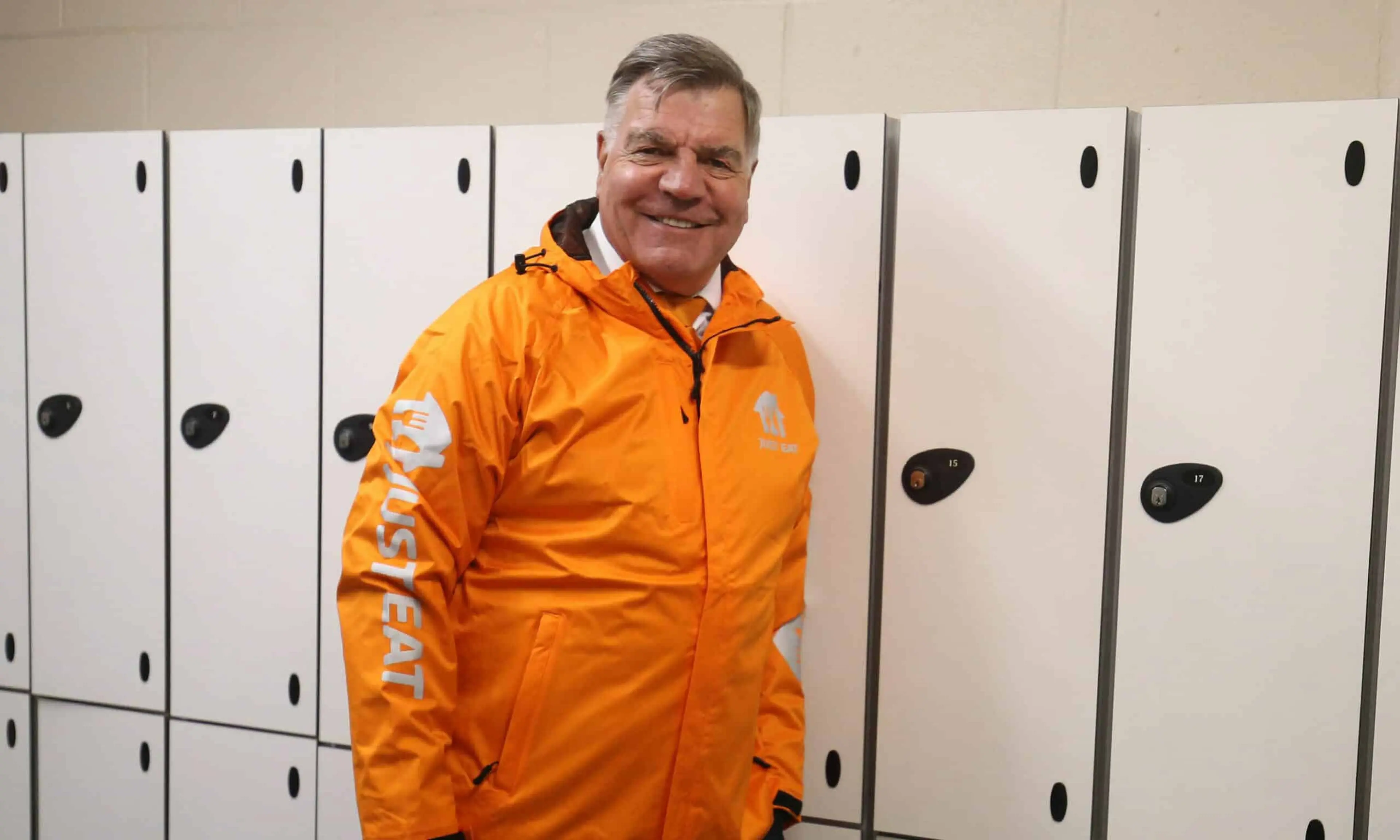
I learned a lot in that time, from Sam and the players. Whatever they do on the training pitch, they do exactly the same on matchdays.
I refereed many a training game up there, 8v8s, 11v11s – it was just something I decided to take upon myself to do. I got to know about challenging players, putting myself in the right position, recognising certain moves from players, really honing my skills.
I’d talk with Sam on a Monday morning about different incidents from the weekend. People like Kevin Nolan were great to me. He was in my ear all the time, even on the training ground! I learned a lot from training with professional players.
I’ve now swapped the whistle for the manager’s tracksuit in Alicante!
It’s funny because you look at some of the times you’ve had managers going absolutely ballistic at you after, or sometimes even during, a game.
I’ve always tried to give people a chance. I’ve always had a level of empathy and tried my best to understand their frustration. Sometimes it’s hard to defend what players and managers do or say, and you have to act accordingly, of course.
I’m a football manager over in Alicante now. I run a veterans’ team out here. Some of the referees out here… oh my God! You totally understand both sides when you’ve experienced them. I’ve crossed the white line as a referee for my entire career, but now I’m experiencing things as a manager where I can understand certain frustrations even more.
Who was in my ear the most throughout my career? Two players come to mind…
Over the years, players get used to you. They know what to expect from certain referees, because we all have different personalities. It’s always about how you conduct yourself, from the moment you arrive at the ground to the moment you leave.
People are looking at you, and it doesn’t cost you anything to smile and be polite with players, managers, club officials. But, ultimately, they knew that when Mark Halsey crossed that line, they knew exactly what they were going to get.
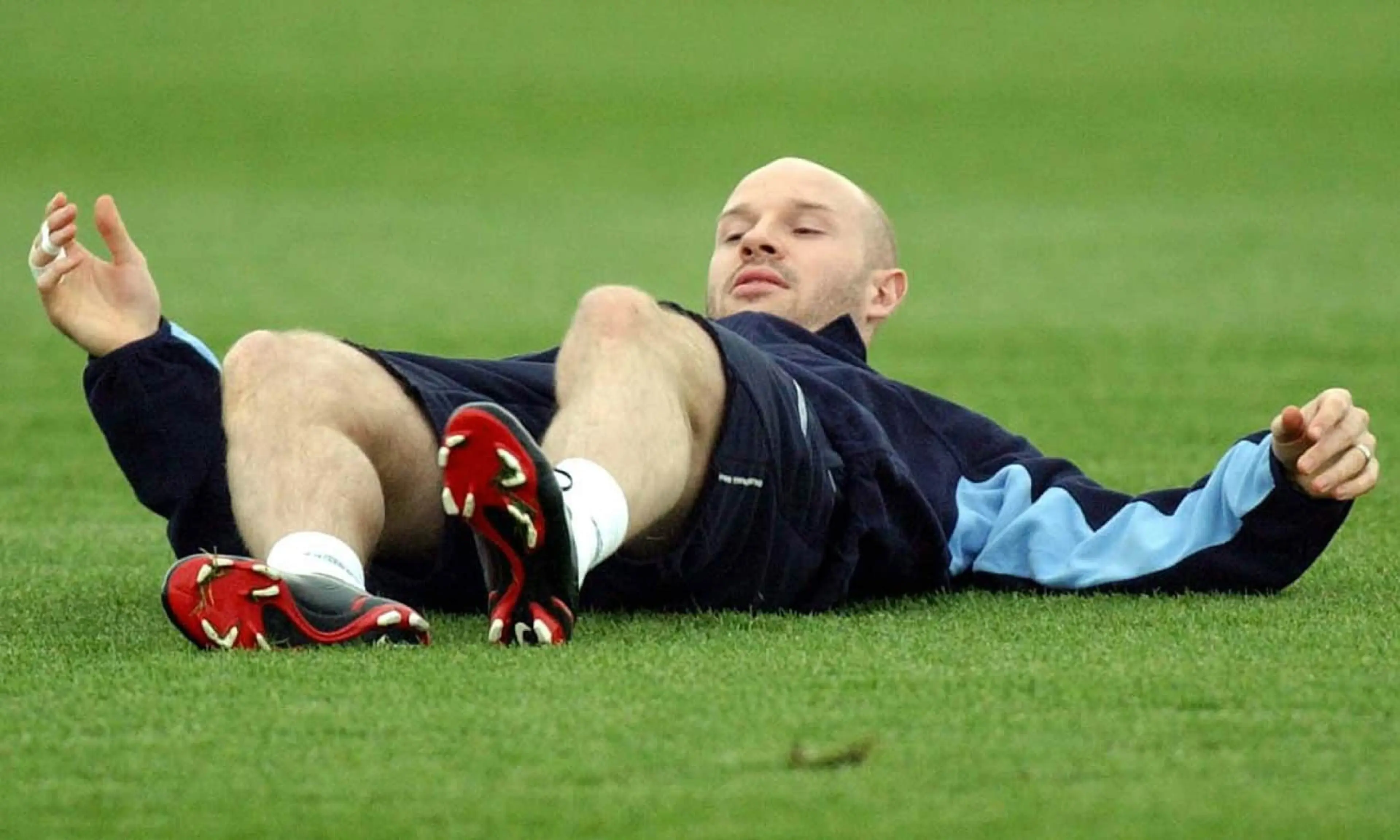
Having been a player myself at non-league level, I always wanted to give players a chance if I could. I always wanted to let the game flow. Listen, there are times when you can’t do that, but on the whole I had great rapport with many players, and I think it’s because of that.
Two names come to my mind straight away when I think about who probably spent the most amount of time in my ear while I was refereeing in the Premier League: Danny Mills and Craig Bellamy. They were the two who were always talking to me, arguing with me. We used to have great battles on the pitch, and I’m not surprised the pair of them do so much good work on TV and in the media now as well.
Referees’ social nights: Lee Mason the social sec would always do impressions of managers
We used to meet up every couple of weeks, as many of us that could make it, but also you’ve obviously got Christmas and end-of-season dos as well.
We stayed at a place in Northamptonshire and we’d go out for a few drinks. What you’ve got to remember, though, is that you’re representing the PGMOL and the Football Association, so you’ve got to be careful and look after yourself.
Yes, engage with the public, of course. If we’re out as a group, there’s a good chance we’re going to get recognised, so you don’t want to come across as arrogant at all. But there are times where you’re drinking and getting a little bit noisy – and that’s when we think about calling it a night and heading back to our rooms. You’ve got to be sensible and careful.
We all knew how to have a good night. Our Christmas dos were always arranged by our social secretary, Lee Mason. Away from the pitch, Lee is very funny.
He would constantly be doing impressions of us and managers. He took Brian Clough off fantastically well – we always used to have a laugh. On the pitch, he’s as nervous as anything, but once we got together, Lee was a very, very funny man.
We moved from Staverton to St George’s Park so whenever we got together for a couple of nights, we’d always look to go out for a few drinks, but there’s not really much in the way of nightlife in and around St George’s!
You’d never see any of us out the night before a game – it’s just not professional. The most I’d have is a glass of red just to settle me. With social media and cameras and all of that nowadays, you’ve just got to be so careful.
The one thing I’d change about VAR…it would be an advantage to everybody
Look, first and foremost VAR is good for the game. We need it because things happen so quickly, referees cannot get absolutely everything right all of the time. What we’ve got to remember is those key four words: clear and obvious errors. That’s what it’s there for. Not subjective.
We’re seeing so many inconsistencies at the moment. We’ve got some fabulous referees in this country, but I think at the moment, they’re relying a little too much on VAR.
We’ve got to be careful that we’re not re-refereeing games. If something is taking two or three minutes, then there’s no way it’s a clear and obvious error.
I’m reliably informed that if a referee goes to a monitor, he has to give what VAR is telling him. It’s obvious, isn’t it? Once they get called over, they’re changing their mind.
The game is moving on, we’re in 2022, we’ve got to move on with it, and we’re not doing that.
I think – as fans – we have to hear the conversations, like we do in cricket and in rugby, between VAR and the on-field referee. I think it would be an advantage to everybody if we could hear that conversation, because we could understand exactly how or why a decision has been made.
If everybody hears that conversation – people may not agree with it every time – but at least they can understand how difficult it is at times.
If I were still a referee today, I’d be more than happy to be mic’ed up for those conversations between myself and VAR.
Players and managers need to look at themselves when it comes to the treatment of referees
I think that players and managers sometimes need to take a look at themselves in the way they conduct themselves on the pitch, both during and after the game.
We’re seeing a big difference in things at the moment, where managers are going on to the field of play to remonstrate with the referee when they’re not happy. That never used to happen – it’s only crept into our game in recent seasons.
I strongly believe that managers should not come onto the field of play at the end of the game for any reason. Wait by the white line and shake the hands of whoever you like, or applaud the fans from the touchline.
But when they step onto the field of play, more often than not they’re approaching the referee about something.
I always used to tell managers before kick-off, when they brought their team sheets into my dressing room before kick-off. I’d always tell them “look, if you’re not happy with me, or my team’s performance, then wait for me outside my dressing room and we’ll have a chat about it. There have been plenty of heated discussions, I can tell you, but for the most part they’ve always stayed in that dressing room.
And look, the problem is, especially in a world of social media – and the amount of times you hear about referees getting abuse and death threats, something I’ve experienced myself – whether they mean it or not, when a manager comes onto the field of play to argue with a referee, it’s almost like it gives supporters a feeling of ‘well, he’s said something, so I can too’.
Sometimes referees can show a lack of empathy for the game, and a real lack of understanding of players’ and managers’ frustrations with certain decisions, and that’s where a lot of problems stem. That’s where man-management comes into things.
Have a word with your fourth official – it’s what they’re there for. Explain the situation to them and have them pass it on to the manager. Control things. That sort of thing should be expected at the top, top level.
Here’s how you solve the communication issue between match officials and the media
I don’t think, at present, it would be fair to put referees in the spotlight in the shape of post-match interviews, because they’re not media trained.
I know that is suggested from time to time. Referees should come out to explain their decisions to the media, but I don’t think that’s right. There is another solution though, and it’s something I think the PGMOL and the FA should look into.
Every Premier League game has a delegate present, and that delegate assesses the referee’s performance for both clubs. He will liaise with the manager a couple of days after the game, regarding the ref’s performance. He’s there to check the ref’s fitness, his man-management and his key match decision-making.
The delegate comes into the dressing room after the game. You speak with them about the incidents that have gone on, the referee gives his or her views on things, and then after the game, that delegate should go out and speak to the press.
That’s where they can say “listen, having spoken with the referee, this is why that decision was made”.
That way, there’s a clear go-between with the officials and the media, without throwing the referees under the bus.








